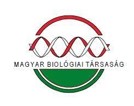A Körös-vidék tölgy-kőris-szil ligetei (Fraxino pannonicae-Ulmetum)
Absztrakt
Jelen tanulmány Magyarország délkeleti része, a Körös-vidék tölgy-kőris-szil ligeterdeinek (Fraxino pannonicae-Ulmetum Soó in Aszód 1935 corr. Soó 1963) társulási viszonyait mutatja be 50 cönológiai felvétel alapján. Talajvíz által mérsékelten befolyásolt, azonális asszociációval állunk szemben. Állományaikban feltűnőek egyes szubmontán elemek, amelyek az Alföldön általában ritkák. Különösen a Fagetalia elemek gyakoriak: Acer platanoides, Acer pseudoplatanus, Aegopodium podagraria, Allium ursinum, Anemone nemorosa, Anemone ranunculoides, Aquilegia vulgaris, Arum orientale, Asarum europaeum, Athyrium filix-femina, Carex sylvatica, Cerasus avium, Circaea lutetiana, Corydalis cava, Corydalis solida, Dryopteris filix-mas, Epipactis helleborine agg., Gagea lutea, Galeobdolon luteum, Galium odoratum, Hedera helix, Listera ovata, Milium effusum, Moehringia trinervia, Myosotis sparsiflora, Pulmonaria officinalis, Scilla vindobonensis, Stachys sylvatica, Stellaria holostea, Viola reichenbachiana stb. E növények valószínűleg az egykori hűvösebb, csapadékosabb és kiegyenlítettebb klímájú „Bükk I. kor” (i.e. 2500-tól i.e. 800-ig) maradványfajai.
Hivatkozások
Aszód L. 1935: Adatok a nyírségi homoki vegetáció ökológiájához és szociológiájához. Tisia 1(1): 1–33.
Becking, R. W. 1957: The Zürich-Montpellier School of Phytosociology. Botanical Review 23: 411–488. https://doi.org/10.1007/bf02872328
Borhidi A. 1961: Klimadiagramme und klimazonale Karte Ungarns. Annales Universitatis Scientiarum Budapestinensis, Sectio Biologica 4: 21–250.
Borhidi A. 1993: A magyar flóra szociális magatartás típusai, természetességi és relatív ökológiai értékszámai. Janus Pannonius Tudományegyetem, Pécs, 95 pp.
Borhidi A. 1995: Social behaviour types, the naturalness and relative ecological indicator values of the higher plants in the Hungarian flora. Acta Botanica Academiae Scientiarum Hungaricae 39: 97–181.
Borhidi A., Kevey B. 1996: An annotated checklist of the Hungarian plant communities II. In: Borhidi A. (szerk.): Critical revision of the Hungarian plant communities. Janus Pannonius University, Pécs, pp. 95–138.
Borhidi A., Kevey B., Lendvai G. 2012: Plant communities of Hungary. Akadémiai Kiadó, Budapest, 544 pp.
Braun-Blanquet, J. 1964: Pflanzensoziologie (ed. 3.). Springer Verlag, Wien–New York, 865 pp. https://doi.org/10.1007/978-3-7091-8110-2
Horváth F., Dobolyi Z. K., Morschhauser T., Lőkös L., Karas L., Szerdahelyi T. 1995: Flóra adatbázis 1.2. Taxon-lista és attribútum-állomány. MTA Ökológiai és Botanikai Kutatóintézete, Vácrátót, 267 pp.
Jakucs P. 1967: Gedanken zur höheren Systematik der europäischen Laubwälder. Contribuţii Botanice, Cluj 1967: 159–166.
Járai-Komlódi M. 1966a: Palinológiai vizsgálatok a Magyar Alföldön a Würm glaciális és a holocén klíma- és vegetációtörténetére vonatkozóan. Kandidátusi értekezés (Kézirat). 280 pp.
Járai-Komlódi M. 1966b: Adatok az Alföld negyedkori klíma- és vegetációtörténetéhez I. Botanikai Közlemények 53: 191–201.
Járai-Komlódi M. 1968: The late glacial and holocene flora of the Hungarian Great Plain. Annales Universitatis Scientiarum Budapestinensis, Sectio Biologica 9–10: 199–225.
Kevey B. 2008: Magyarország erdőtársulásai. (Forest associations of Hungary. Die Wälder von Ungarn.) Tilia 14: 1–488. + CD-adatbázis (230 táblázat + 244 ábra).
Kevey B., Hirmann A. 2002: „NS” számítógépes cönológiai programcsomag. In: Horváth A. (szerk.): Aktuális flóra- és vegetációkutatások a Kárpát-medencében V. Pécs, 2002. március 8-10. (Összefoglalók), Pécsi Tudományegyetem Növénytani Tanszék, Duna-Dráva Nemzeti Park Igazgatósága, Baranya Megyei Múzeumok Igazgatósága, Kosbor Természetvédelmi Egyesület, Pécs, p. 74.
Kevey B., Papp L., Lendvai G. 2017: A Nyírség tölgy-kőris-szil ligetei (Fraxino pannonicae-Ulmetum Soó in Aszód 1935 corr. Soó 1963). Kitaibelia 22(1): 179–220. https://doi.org/10.17542/kit.22.179
Király G. (szerk.) 2009: Új magyar füvészkönyv. Magyarország hajtásos növényei. Határozókulcsok. Aggteleki Nemzeti Park Igazgatóság, Jósvafő, 616 pp.
Máthé I. 1936: Növénycönológiai tanulmányok a körösvidéki liget- és szikes erdőkben. Acta Geobotanica Hungarica 1: 150–166.
Mucina L., Grabherr G., Wallnöfer S. 1993: Die Pflanzengesellschaften Österreichs III. Wälder und Gebüsche. Gustav Fischer, Jena – Stuttgart – New York, 353 pp.
Oberdorfer E. 1953: Der europäische Auenwald. Beiträge zur naturkundlichen Forschung in Südwestdeutschland 12: 23–70.
Oberdorfer E. 1992: Süddeutsche Pflanzengesellschaften IV. A. Textband. Gustav Fischer Verlag, Jena – Stuttgart. New York, 282 pp. https://doi.org/10.1002/biuz.19930230311
Pawłowski B., Sokołowski M., Wallisch K. 1928: Die Pflanzenassoziationen des Tatra-Gebirges VII. Die Pflanzenassoziationen und die Flora des Morskie Oko-Tales. Bulletin International de l’Académie Polonaise des Sciences et des Lettres, Classe des Sciences Mathématiques et Naturelles; Série B: Sciences Naturelles, Cracovie, Suppl. 1927: 205–272.
Podani J. 2001: SYN-TAX 2000. Computer Programs for Data Analysis in Ecology and Systematics. User's Manual. Scientia, Budapest, 53 pp.
Soó R. 1960: Magyarország új florisztikai-növényföldrajzi felosztása. Magyar Tudományos Akadémia Biológiai Csoportjának Közleményei 4: 43–70.
Soó R. 1963: Systematische Übersicht der pannonischen Pflanzengesellschaften VI. Die Gebirgswälder II. Acta Botanica Academiae Scientiarum Hungaricae 9: 123–150.
Soó R. 1964, 1966, 1968, 1970, 1973, 1980: A magyar flóra és vegetáció rendszertani-növényföldrajzi kézikönyve I-VI. Akadémiai kiadó, Budapest
Vlieger J. 1937: Aperçu sur les unités phytosociologiques supérieures des Pays-Bas. Nederlandsch Kruidkundig Archief 47: 335–353.
Zólyomi B. 1936: Tízezer év története virágporszemekben. Természettudományi Közlöny 68: 504–516.
Zólyomi B. 1952: Magyarország növénytakarójának fejlődéstörténete az utolsó jégkorszaktól. Magyar Tudományos Akadémia Biológiai Osztályának Közleményei 1: 491–530.


















